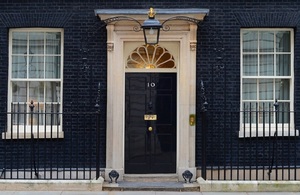Heat and Buildings Strategy
The much delayed Heat and Buildings Strategy has now been published on 19 October 2021.
The GSHPA welcomes the recognition by government that heat pumps are the key technology to be adopted to reduce carbon emissions from heating homes and buildings.
However, the Heat and Buildings Strategy risks repeating the mistakes of the past by offering limited financial help and, although the policy moves are in the right direction, they seem to be too little, too late.
- a £5,000 up-front grant is offered for households installing an air source heat pump (or £6,000 for a ground source heat pump)
- the government recognises that the 25% levy on electricity is holding back heat pump installations, but has only resolved to cure this anomaly "gradually"
- the ban on installing fossil fuel boilers recommended by the Climate Change Committee is accepted, but the government only plans to act on this from 2035
The GSHPA would have preferred to see a much greater sense of urgency because bold action is needed. Currently less than 2% of UK homes have any form of low carbon heating and still over 1,600,000 gas boilers are being installed each year in the UK.

The share of renewable heat in the UK is almost the lowest of any country in Europe.
With the large reduction in the grid carbon factor the electrification of heat is the way to go and that means installing heat pumps.
Experience from countries like Sweden and Finland shows that once fossil-fuel heating is no longer the cheapest option, the market changes rapidly. However, the UK still imposes significant taxes and environmental levies (25%) on domestic electricity, but almost none (2%) on gas: this is the reverse of what is needed if the UK is achieve anything near 600,000 heat pump installations a year by 2028.
The opportunity for the UK to decarbonise heating is very large. Doing so will cut carbon emissions, improve air quality and people's comfort and health, and help to achieve our Net-Zero targets.
Action is needed on the Fiscal Background to UK energy prices
The Chancellor needs to readjust the Fiscal Background to energy prices if he is serious about preparing for Net Zero carbon emissions.
It is astonishing that Alok Sharma invited the world to CoP26 in Glasgow – with a straight face – without having corrected the Fiscal Background.
Heat Poverty
Some of the worst cases of heat poverty are suffered by those who rely on direct electric heating: this is the most expensive form of heating. The Chancellor needs to reduce all the "green taxes" on domestic electricity to help those in fuel poverty. The reduction is also needed to allow consumers to choose heat pumps – and to allow the supply chain for UK heat pump installers to grow.
A carbon tax on the burning of gas is also necessary to discourage the use of combustion for heating: this will not draw anyone into heat poverty - unless the increased tax on gas (for those that use gas) is larger than the reduction in the inappropriate "green taxes" on electricity (which everyone uses).
Petition
If you believe the government should reduce taxes on electricity to allow people to install heat pumps, then please sign this Heat Pump Petition. Please encourage others to do so.
Minus 45 Report
The Minus 45 Report was published on 21 October 2021 by UK FIRES, an academic group from six major UK universities funded by the Engineering and Physical Sciences Research Council.
The Minus 45 Report, like the Absolute Zero report which was published in 2019, is firmly rooted in science but is also governed by a practical approach to incremental change and the need of all of us to address the need to approach the challenge of achieving Net Zero together as a society, based on technologies that are available now.
The Minus 45 Report is critical of the Heat and Buildings Strategy and the overarching Net Zero Strategy for failing to take actions to meet the pledges the UK gave to the UN ahead of COP26. Key quotes from the report:
- Net Zero Strategy will deliver only small fraction of UK commitment to COP26
- Net Zero Strategy talks about big ambitions but makes small commitments
- Net Zero Strategy places all climate hope on new technology
- Net Zero Strategy mentions hydrogen 501 times in 368 pages, but UK today has no emissions free hydrogen production.
See Renewable Heating See Renewable Cooling

